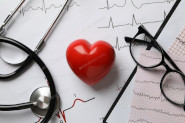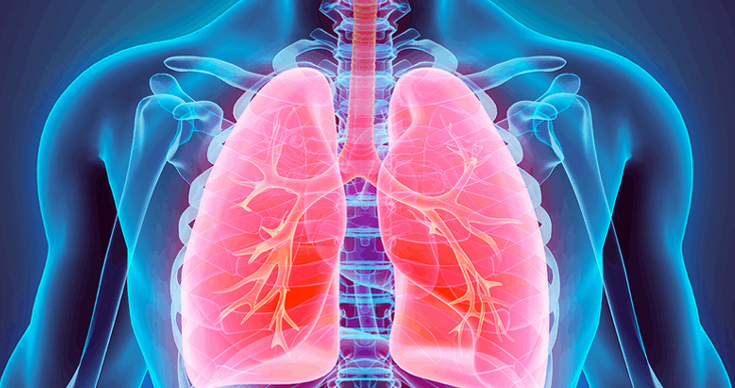ED and Heart Disease: What’s the Link?
You might be surprised to know that if you have Erectile Dysfunction, then it can lead to cardiovascular disease. It is actually a symptom that you might have atherosclerosis, and this is quite common even in men who are of young age.
In atherosclerosis, the arteries get narrow, and the person is at risk of a heart attack. The basic studies suggest that between the age of 40 to 70 years, mostly men get affected by ED.
So, before ED leads to heart risk, it is important to get an appointment for a thorough medical check-up. You can consult with the best heart hospital in Kolkata India, for subsequent follow-ups.
What is heart disease?
The term “heart disease” covers a very broad aspect and also includes a wide range of medical conditions associated with heart and blood vessels. The most common problems witnessed across the globe are:
- Heart failure
- Stroke
- Arrhythmia
- Heart attack
There 4 big reasons that lead to the development of heart disease:
- Hypertension
- High cholesterol
- Smoking, alcohol intake, and drug abuse
- Diabetes
Other than these, if someone is born with a heart defect, then they have a chance of developing heart disease over time.
What is ED or Erectile Dysfunction?
ED is a medical condition where the patient fails to keep an erection for sexual intercourse. This is quite a common condition and millions of men get affected throughout the world. A proper flow of blood is required for erection, but when the blood fails to reach the penis, then Erectile Dysfunction occurs.
Erectile Dysfunction occurs due to dysfunction of the inner lining of the blood vessels (endothelium) and smooth muscles. This indicates underlying cardiovascular problems, such as heart failure, stroke, peripheral vascular disease, etc. Thus, Erectile Dysfunction is treated as a sign of a heart problem. So, book an appointment with the best heart hospital in Kolkata India, to eliminate all the risks.
The basic cause of Erectile Dysfunction
Erectile Dysfunction is the combined result of physical as well as psychological health. There are several causes, and the range generally tends to vary from one person to another, such as:
- Low estrogen.
- Use of a high dose of medication.
- A buildup of cholesterol in the blood vessels stops the flow of blood.
- Injury to penis
- Venous leak
- Operation of prostate, bladder, and colon during cancer
- Obesity
- Surgeries or injuries near the pelvic or spinal cord
- Mental health concerns, including stress, anxiety, lack of communication, depression, panic attacks, sleep disorder, etc.
Diseases that most cause Erectile Dysfunction
There are specific diseases that can lead to erectile dysfunction in the long run, such as:
- Kidney disease
- Neurological damage
- Prostate cancer
- Metabolic syndrome
- Multiple sclerosis
- High blood pressure
- Diabetes
- Atherosclerosis.
- Peyronie’s disease
Is ED part of aging?
No, ED is not part of growing older. However, studies reveal that older men tend to be diagnosed with ED more often because they need more stimulation to achieve an erection. But, that can be cured with medications, and they can still be able to get erections.
When should you consult with a doctor?
There are certain situations that require immediate doctor’s attention. Alongside, you must visit a heart hospital in Kolkata India, to get an immediate cure.
- If you have trouble getting an erection or trouble keeping an erection, you must consult with a doctor.
- Premature or delayed ejaculation should also be a concern of visiting the doctor.
- If you have any disease that can be linked with ED, such as diabetes, heart disease, or any other health condition, then you must get it diagnosed immediately.
Relation between Heart Disease and Erectile Dysfunction
When discussing erectile dysfunction, it is important to know about the heart and the associated blood vessels. If the blood flow is getting interrupted, blocked, or slowing down in its flow, then it would fail to keep an erection. Now, this only occurs if you have heart disease.
Any kind of heart problem can change the blood flow as the heart has to work harder so that blood can reach every part of the body. Now, this situation can generate high blood pressure and, thus, damage the blood vessels.
Further, if you have a blood clot, then it can also result in a similar situation. Even high cholesterol and irregular heartbeat can also lead to restriction of proper blood flow in the blood vessels.
Treatment
When you consult with the doctor about Erectile Dysfunction, you just need to understand whether you have underlying atherosclerosis. If the reports reveal about atherosclerosis, then you are put on a strict diet and exercise. Along with that, you are also asked to quit smoking and drinking, and certain medications are prescribed.
Other than this, if you are diagnosed only with ED, then the most common advice is to maintain a proper lifestyle and have proper medication. Now, this would keep the blood vessel dilated and induce proper blood supply into the penis.
Furthermore, it is also advised that one should not go for nitrate medications in these situations. Because it can increase the risk of the disease.
Are you suffering from high blood pressure?
If you already have high blood pressure and are on continuous medication, then it can lead to ED. Medications that are meant to reduce blood pressure, such as diuretics, such as hydrochlorothiazide and furosemide, and beta-blockers, such as atenolol and metoprolol have side effects which cause ED, but often.
In this case, both ED and heart disease need to be cured through appropriate medications that do not increase the risk of any disease. Your healthcare provider will be able to help you out in controlling both problems side-by-side. This might require a series of diagnoses and alterations in medication dose based on the conditions.
Conclusion
However, if you have Erectile Dysfunction, then it does not always signify that you will also have cardiovascular problems. ED is a sign that helps a doctor to eliminate the risk associated with cardiovascular disease, and this would also help you to lead a healthy life over the years. Consult with the best doctors at ILS Hospitals and experience advanced facilities for immediate treatment.
7 ways to Keep Your Heart Healthy
Heart disease is counted as one of the leading factors causing the death of people across the globe. According to the Centre for Disease Control and Prevention, the most affected area is the US, where heart disease is the reason for the high mortality rate. The most common forms of the disease are heart attack and stroke, which accounts for 80% of the population. Heart disease can occur due to genetic factors, but mostly it is a lifestyle disorder that occurs due to improper and unhealthy living styles. If you witness any sign of heart problems, book an appointment at the best heart hospital in Kolkata India. Heart disease can be prevented, but you need to start early and take care of your heart as early as possible. But, even if you are beyond your 20s, then you can follow these 7 regimes that will help you to keep your cardiac health stable. So, start with modifying your daily routine.
7 Ways to modify your lifestyle and maintain a healthy heart
Lifestyle contributes to developing plaques within the arteries, which lead to blood clot and increases the chances of a heart attack. Consider these healthy habits to keep your heart pumping blood without any restrictions.
Staying physically fit
Through research, it has been found that adults who engage in regular physical activities, which can range from basic to moderate, have fewer chances of developing heart disease. They also suffer less from heart attack and stroke. Daily exercising can help to improve blood pressure, keep it balanced, reduce the chances of a blood clot, stabilize blood sugar levels and also control cholesterol. It is usually advised that you should exercise at least 150 minutes a week (the time span can be modified based on your own capability).
Maintain the blood pressure
Blood pressure is the main reason that can lead to heart disease. It is a primary symptom that helps you to understand that you might suffer from a heart attack or stroke. High blood pressure (Hypertension) does not have any specific symptoms, but you must get it monitored from time to time. Thus, you need to keep it under control and seek advice from your health provider at the best heart hospital in Kolkata India, from time to time. If prescribed, you might have to take medicines or change your lifestyle.
Maintain a healthy weight
You need to check your BMI repeatedly, and if it signals that you are overweight, then you have to reduce it. Even gaining a little extra weight can put you at risk of getting a heart attack or stroke. Your weight does not directly affect your heart, but it contributes to cardiovascular risk factors, such as Type 2 diabetes, hypertension, sleep disorder and accumulation of cholesterol. However, it is completely a misconception that your body should be deprived of all the fat. You need good fat to keep yourself healthy. So, daily exercise and avoiding junk food can help to maintain a proper weight. Try to monitor your weight and keep it stable; even underweight is not recommended to avoid heart problems.
Eating healthy and balance food
Your daily meal chart should include fruits, vegetables, whole grains and an adequate proportion of carbohydrates, protein and fat. Thus, you must include fish products with high Omega 3 fatty acid content as it has anti-inflammatory properties. Add beans, lenticels and fiber to your diet. Try to avoid drinks that have high sugar content, high calorie or ones having additives and preservatives. Usually, a Mediterranean diet that includes healthy fat and fresh ingredients is recommended by heart health experts. This is also known as the DASH diet. It has been evident that a balanced eating style can reduce the risk of cardiovascular disease. You can also include healthy fats in your diets, such as seeds, nuts, and avocado. Add products such as eggs and poultry with low-fat composition. However, you need to avoid red meat and processed food.
Limiting the use of alcohol and smoking
Smoking and drinking are quite injurious to health, and too much of it can increase blood pressure. This affects the blood flow and leads to an increase in blood cholesterol. So, to avoid the risk of a heart attack or a stroke, you must quit smoking and drinking. However, occasionally, one or two drinks in a day or 1 cigarette in a day won’t create any problem. But, if you are already suffering from a heart problem, then you must quit this habit even on special occasions.
Avoid stress and anxiety
In a sedentary life, work pressure has been building up, affecting proper sleep routines. It has also affected getting some time for exercise or taking care of health. Thus, you need to reduce stress in order to avoid heart disease. Try stress-busting strategies, such as relaxation techniques, yoga, meditation, cooking, listening to music or anything you love. Other than this, you can practice deep breathing exercises if you find yourself in any stressful condition or having anxiety.
Understand the early signs of heart
You must monitor and manage the medical conditions that can lead to the risk of heart disease. There are certain symptoms or common factors, including high pressure, high cholesterol, diabetes, gaining weight rapidly etc. These are considered to be symptoms of heart problems. So, you must consult a heart specialist at the best heart hospital in Kolkata India, to keep your heart healthy. They might prescribe medications for the time being to reduce the effect of the components that trigger heart problems.
Conclusion
It is always recommended to get enough sleep at night because it can lead to high blood pressure. This immediately makes it difficult to lose weight. But, on the contrary, when you get proper sleep, your heart rate also goes down, and your hormones are not under stress. This keeps your heart at risk. You must also book an appointment with the best heart specialist at ILS Hospitals to understand the present condition. On-time monitoring can help to reduce severe complications in the near future.
First Aid for Heart Attack Everyone Should Know
Heart attack is considered to be one of the common life-threatening medical emergencies. However, it is often confused with cardiac arrest, but both are quite different medical conditions.
During a heart attack, blood flow is blocked, and the heart gets deprived of proper nutrition and oxygen. This situation typically arises due to blockage in arteries or a clogged artery due to deposition of plagues. Thus, a person suffering from a heart ailment is asked to take heart attack precautions.
Further, it is imperative to know that the heart does not stop beating during a heart attack, while in the case of cardiac arrest, the heart stops beating and occurs suddenly.
In India, the death rate due to cardiac diseases is relatively high. So, one must always be aware of the first aid for heart attack. Awareness can help save a life, be it yours or a family member or an acquaintance.
The symptoms of heart attack
Heart attacks have become quite common and can occur in between everyday activities such as relaxing on the balcony, shopping, hanging out with friends or after a peaceful sleep. It is essential to recognise the symptoms of a heart attack to provide first aid.
A heart attack occurs suddenly, and the warning side includes –
- Discomfort around the chest area
- Feeling excessive pressure or pain in the chest
- Excessive pain in the peripheral areas of the body, including arms
- Pain in the jaw and stomach
- Shortness of breath
- Cold sweat
- Lightheadedness
In women, specific symptoms differ from men, and these are – extreme fatigue, fainting and pressure on the upper back. Thus, one must take note of the heart attack precautions.
First aids for heart attack
No, you do not need to be a specialist to provide first aid in case of a heart attack. If you have already detected the symptoms, it’s time to take action.
1. Call an emergency number
It would bring help within minutes, and the patient could be shifted to the hospital at the earliest. Usually, ambulances have a life-saving kit and equipment that can assist the patient
until professional intervention is received at the hospital. This helps to increase the survival rate. Further, the paramedics are trained to revive a person’s heartbeat in severe conditions.
2. Provide medication
Aspirin is the standard medicine prescribed during a heart attack as it stops or even slows down the artery-clogging effect. You can either ask the patient to chew or swallow one tablet of aspirin (dose for an adult). Otherwise, if the patient is on heart medication, they can also take that, such as nitroglycerine.
3. Do not panic
In this situation, you must keep yourself calm, try to loosen the tight clothes of the patient, and help them sit down and rest. Further, assure them that it’s just a minor health issue. You must try to keep them awake. Do not provide water or food in this scenario, and it is part of heart attack precautions.
4. Chest compression
If the patient is about to lose consciousness, then you can provide chest compression. The process is quite simple – kneel next to the patient and lock your hands together. Now, place your hands on the middle of the chest. Next, using the pressure of your entire body, push downwards hard and fast. Try to cover at least two inches deep.
Continue the compression until the person regains consciousness. You must continue for 100 beats per minute and switch every two minutes. This is also called hands-on CPR and is associated with a “chain of survival” technique. Technically, this helps to increase the chance of someone’s survival rate.
Conclusion
The most important part of dealing with a heart attack is to act quickly. It takes minutes for the heartbeat to stop, so do not wait for the symptoms to fade away. Even if the patient has regained consciousness, you must immediately take the patient to a cardiac hospital for a complete checkup. ILS Hospitals provide the best medical facility in terms of heart attack emergencies.
Reasons for Heart Failure in COVID-19 Patients and How to Prevent
Covid-19 can affect various organs of the human body, including the lungs, stomach, intestine, and the recent addition to this list is the heart. Initially, it was thought that people with underlying heart disease have a higher risk of developing complications from coronavirus.
However, according to a top heart hospital in Kolkata, India, COVID-19 can bring about significant damage to the heart of a patient even if they don’t have an underlying heart condition. In fact, about 24% of coronavirus patients had experienced heart failure, says the heart hospital.
However, opinions are divided on this matter, and some doctors believe that heart failure is a result of a pre-existing heart condition that remained undiagnosed before the patient got infected with COVID-19.
What Is Heart Failure?
People think heart failure sounds scary, but it does not mean your heart function has stopped. It means that the functioning of the heart is slowing down. A common condition usually affecting people older than 65, heart disease is often the result of ageing.
Symptoms Of Heart Failure
Symptoms commonly associated with heart failure are:

- Chest pain
- Fatigue
- Shortness of breath
- Reduced appetite
- Water retention and swollen legs, feet
- Dry cough
If you experience any of the above symptoms, contact your practitioner or the heart hospital immediately.
Why Do COVID-19 Patients Develop Heart Problems?
According to scientists, COVID-19 causes drastic inflammation throughout the entire body. Such a powerful immune response can lead to rupturing of the fatty plaque built-up. The presence of a secondary infection can accelerate or aggravate this process, leading to heart failure.
Further, coronavirus drugs can reduce the efficacy of the drugs used to treat heart disease. The most notorious ones are Hydroxychloroquine and Remdesivir. Usually, this can interrupt the medications that control heart rhythm and lead to low blood pressure.
How To Prevent Heart Failure?
The best way to prevent heart failure to maintain a healthy and fit lifestyle. Living a balanced lifestyle will reduce your risk of developing heart diseases in the first place, which can be the major risk factor for developing heart failure during COVID-19. The cardiologist of a top heart hospital in Kolkata, India, recommends the following simple lifestyle changes to keep yourself healthy and safe:
- Do light exercises at home
- Get an appropriate amount of rest
- Keep your blood pressure in check, especially if you have high blood pressure
- Eat a healthy, nutritious and balanced diet
- Keep communicating with the doctor and updating him about any changes in your he
Conclusion
Maintaining optimum heart health is very important during the COVID-19 pandemic. Try to get yourself screened regularly to detect any pre-existing heart conditions at the earliest. Choose a reputed heart hospital in Kolkata, India, to get a meticulous result.
Keep following the pandemic protocols by maintaining a healthy distance from people, wearing a mask and washing your hands. While you stay indoors, try to exercise, do yoga, meditation and eat beneficial food to keep yourself in adequate health and to avoid any unwanted risks of COVID-19 and heart disease. https://www.ilshospitals.com/ is a reputed heart hospital in Kolkata; you can visit them for any cardiac related issue during this pandemic.
An insight into Lung Cancer, its types and complications
One of the scariest diseases that the world has been fighting is cancer – a disease that destroys the tissues in the body where the abnormal cells divide uncontrollably. Lung cancer is the leading cause of cancer deaths worldwide. It is essentially the growth of deformed cells in the lung. It is riskier in nature as the detection usually happens in the latter stage, i.e. when it reaches the advanced stage. But for an early stage lung cancer, the survival rate is better as compared. Many scientists are working rigorously to examine the risk factors and discovering the protective factors.
It is no news that people who smoke have the greatest risks of lung cancer but that does not account to the fact that non-smokers are free from the risk.
Types of Lung Cancer
Alike all the other diseases, doctors have divided lung cancer into two major types. The two types of lung cancer include small cell lung cancer, exclusively in heavy smokers and non-small cell lung cancer, an umbrella term for several types of lung cancers. While non-small cell lung cancers include squamous cell carcinoma, adenocarcinoma and large cell carcinoma.
The complications caused by lung cancer can be as below:

- Shortness of breath – The cancer grows and blocks the airways that help people breathe, thus, shortness in breath. It also causes fluid to collect around the lungs thus not allowing the expansion during inhalation.
- Blood in cough – One of the rather gory complications are when the cancer causes bleeding in the airway, known as hemoptysis. But treatments are available to control bleeding
- Pleural effusion – When the fluid accumulates in the space that surrounds the affected lung in the chest cavity, is known was pleural effusion, Shortness is breath often results from this. Treatments are available to drain the fluid from your chest and minimise the risk.
- Metastasis – When the cancer spreads to the other parts of body, it is known as metastasis. The early symptoms are pain, nausea and headaches.
When should you visit the doctor?
If the signs are persistent, it is advisable to make an appointment with your doctor. Pulmonology and chest medicine is the medical specialty dealing with detecting and treating illnesses and conditions involving the respiratory tract. Many a time, these patients require intensive medical care and life support.
Pulmonologists address the following conditions
- Asthma
- Rheumatoid Lung Disease
- Severe Lung Infection
- Bronchitis
- Occupational Lung Disease
- Chronic Obstructive Pulmonary Disease (COPD)
- Pulmonary Fibrosis
- Lung Cancer
Pulmonologists perform a range of diagnostic tests to evaluate the nature of the underlying condition and offer treatment accordingly. Some of them are as follows
- Blood Profile Investigation
- Pulmonary Function Tests
- Chest X-ray
- CT Scanning
- Spirometry
- Scintigraphy
- PET (Positron Emission Tomography)
- Sleep Studies
- Bronchoscopy
At ILS Hospitals, the expert pulmonologist offers the best treatment for many pulmonological disorder. ILS Hospitals provides advanced diagnostic services with round the clock doctors and state of the art Operation Theatres. Our renowned surgeons and experienced team of paramedics ensure the complete safety of all our patients. Please visit www.ilshospitals.com/pulmonology-and-chest-medicine/or call us on +91 90514 60000.

Heart Attack – 5 Alarming Signs of Possible Heart Attack
Several symptoms of heart attacks can be widely confused and overlooked by most of us. Thus, several people fail to get proper treatment on time. Know these to save a life.
As you are already familiar with the 5 signs of possible heart attack in our previous article. According to cardiologists the five alarming signs which mean possible heart attack.
-
Sweating
Though it is quite common to sweat while doing any strenuous work, as a matter of fact, it is not unusual to sweat during summers. But sweating without any explainable reason can be quite alarming. In fact, it might be a sign your body is giving you of a possible heart attack. Get a checkup, even in case you are having a doubt.

-
Irregular heartbeat
Another symptom that must be calibrated carefully is any abnormal heart rate. Heart beats faster in case of running or being excited, similarly it gets slower in case of being depressed or sad. But if any abnormalities are observed, it could be indicating something more serious than extra caffeine or inadequate sleep.

This condition is medically termed as trial fibrillation and is one of the signs of potential heart attack.
-
Unstoppable cough
Usually, a cough (or a couple of) isn’t something that is related to heart. But repetitive cough without any cold or throat infection that won’t stop is a possible cause of heart attack. Especially a long lasting cough which produces ink or white mucus.

The reason of constant cough is that the heart cannot keep up with the requirement of the body and causes the blood to back flow to the lungs. If not taken care on time, this may result in bloating. The doctor may also look for swollen feet and ankles.
-
Pain that spreads to the throat or jaw
Under normal conditions, the throat and jaw pain are mostly caused by a sinus, muscle pain or a cold. If the pain primarily generates from a chest discomfort that eventually travels upwards to the neck and jaw, it might be another sign of possible heart attack.

-
Snoring
Snoring is that brief period of time, when the breathing pauses momentarily. Most of the people snore at some stage of life, for some, it is while aging, while other young people snore after a tiring day at the office. Snoring for a long time is yet another indication of the body towards a possible heart attack.

If you or any of your friends or family member experiences any of these symptoms, don’t keep making wild guesses and wait for it to get over on its own. Instead, let a doctor address the situation and give proper advice after assessing it.
What Are The 5 Probable Signs Of Heart Attack You Should Watch Out For?
We have come across the saying ‘follow your heart’, but are you paying enough attention to your heart? Can you tell when your heart is not functioning properly? Probably not. In reality, heart attack necessarily does not onset with a clutch over heart closely followed by falling on the floor, like the way it is depicted in the movies. In fact, according to Cardiologists several heart attacks do not even begin with heart or even in the chest. Without proper knowledge it is often difficult to tell.
In case you are in doubt whether it is cardiac arrest or not, it is always advised to go for a checkup, especially if you are aged, overweight or have high blood pressure, sugar or cholesterol.
Look out for these signs in your loved ones and yourselves, which might be signs of heart attack.
-
Chest Discomfort
It is the most alarming sign of any cardiac arrest. In case any of the artery is blocked, i.e. experiencing heart attack, it is more likely to suffer pain, pressure or tightness in the chest. The discomfort may vary from minute to mild to severe. Some describes it as a feeling of having a heavy object on the chest, while others describe it as a burning sensation.
Though some people experience heart attack even without any chest discomfort, especially women, it should be calibrated carefully.

-
Pain which spreads to Arms
Due to blockage of artery, the left side of the body experience pain. It initiates from the chest and spreads through the arm, specifically on the left side. It may last up to a few minutes, and can occur in episodes, i.e. the pain comes and goes away.

-
Heartburn or Indigestion
The occurrence of any or all of these signals should be considered as a possible sign of heart attack. Moreover, some may vomit along with it. As per Cardiologist, women are more likely to experience it as compared to men. These symptoms get easily neglected by most of the people as these symptoms happen to people every now and then due to acid reflux or improper diet as well.

-
Fatigue or Exhaustion
Feeling fatigued even after doing some light work such as climbing stairs or taking a stroll. It may be a sign of weakness and it is not alarming if it occurs once or twice, but repeated occurrence of unexplained weakness, especially for women, should not be neglected and immediate help should be sought.

-
Feeling Dizzy
Experiencing dizziness or out of balance or feel faint, it should be closely observed. Though it may be a result of inadequate food. But if it is combined with chest congestion, then it should ring a bell.

These signs are the most prominent of that of heart attack. So educate yourself, your family and colleagues for an early detection and timely treatment.
Watch out 5 more symptoms of possible heart attack here.


















